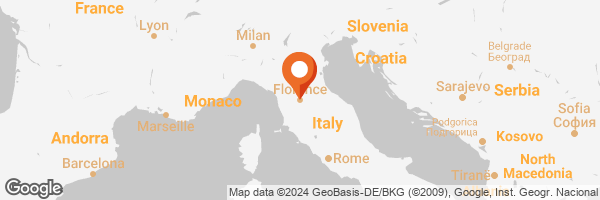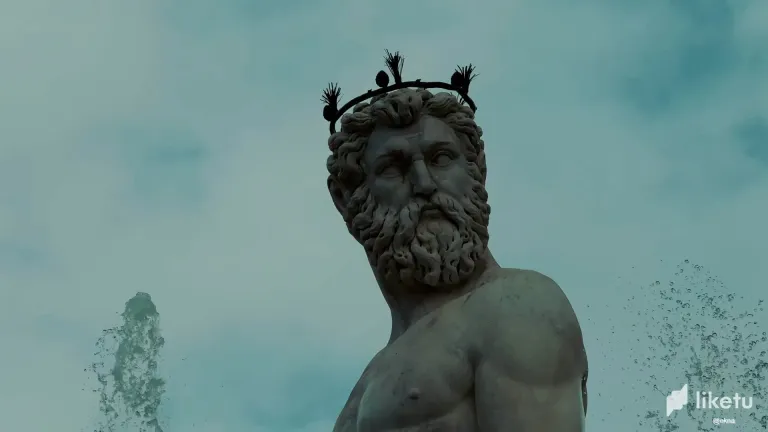
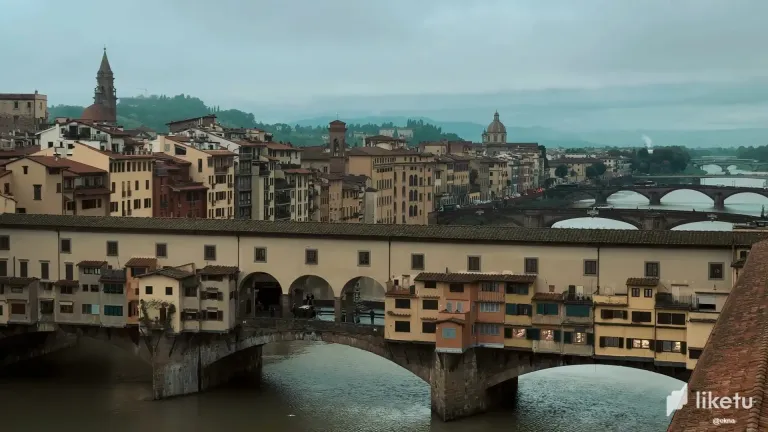
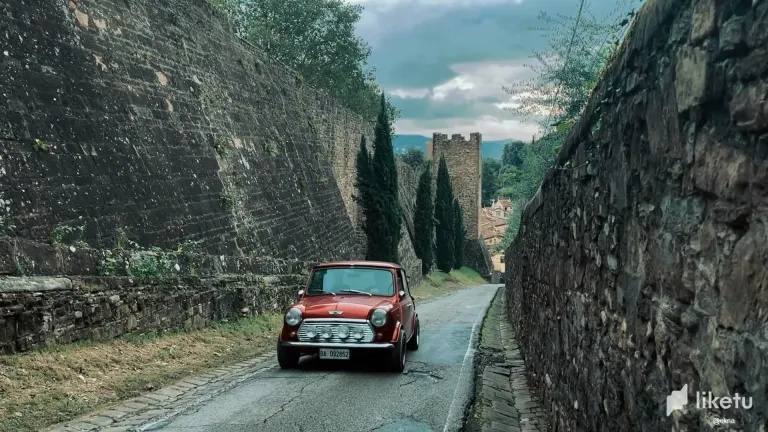
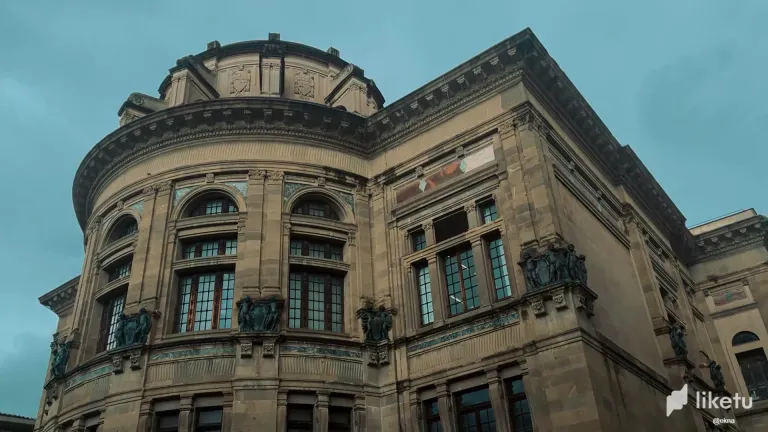
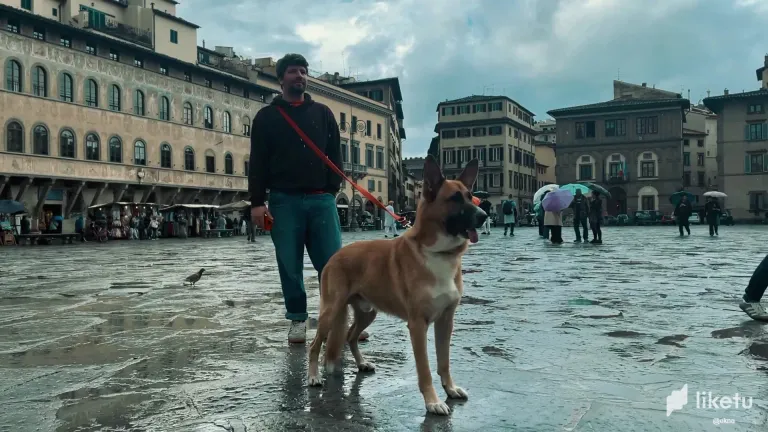
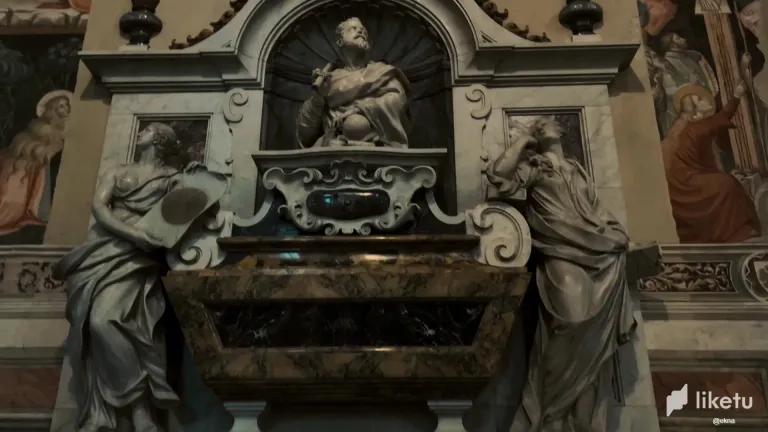
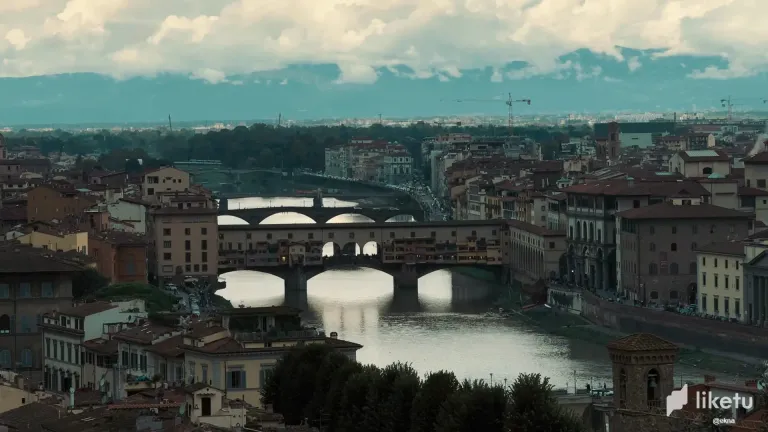
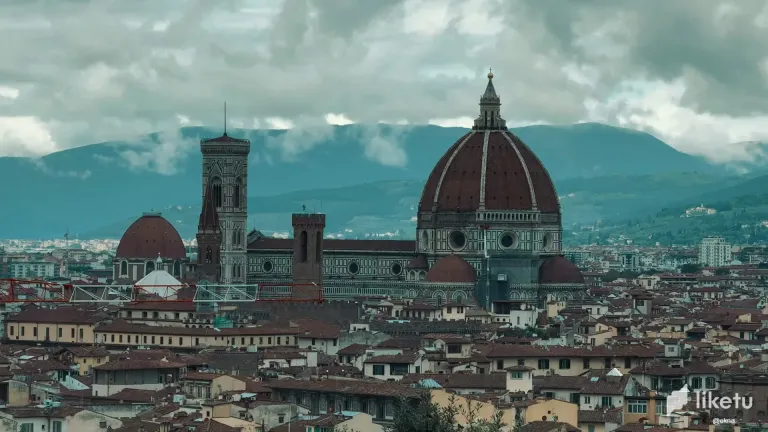
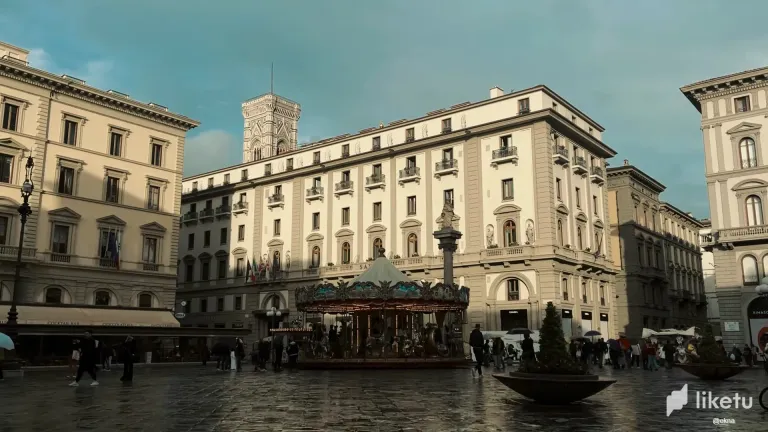
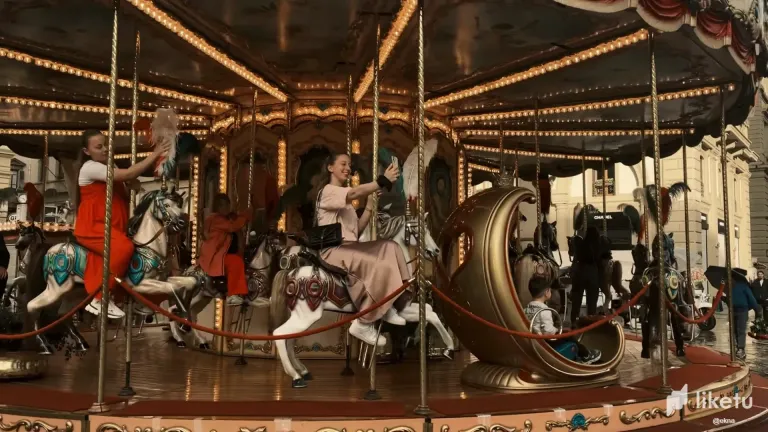
We encountered rain in almost every city in Italy and Florence was no exception. This is not surprising, as Florence is one of the cities in northern Italy that receives the most rainfall.
I had already visited most of the main tourist spots in Florence, so this time we simply walked through the wet streets with umbrellas, taking short breaks in the squares while waiting for the rain to pass.
We stopped at Santa Croce Square, where most of the city’s tourist walks begin. Here you’ll also find the Santa Croce Basilica, famous for Giotto’s frescoes and the graves of about 300 notable Florentines. On the steps of the basilica stands a statue of Dante Alighieri. This statue once located in the middle of the square like other statues, was moved to a more water-resistant place due to frequent flooding in Florence. The façade of the basilica is clad in white and green marble, similar to the style of Florence’s largest cathedral Santa Maria del Fiore. This marble cladding was added only about two hundred years ago.before that the façade was made of light brick, like the side walls.
According to guidebooks, the pure unspoiled Gothic style of Santa Croce and the art collections inside make this church one of the most important historical and artistic monuments in the world. The tombs and sarcophagi of famous Florentines are placed along the basilica’s side walls. Here you’ll find the final resting places of poets, artists, scientists and politicians not just from Florence, but from around the world. A memorial to Nobel Prize-winning physicist Enrico Fermi is also here.
Michelangelo Buonarroti’s tomb and statue are located here as well. Similarly famous astronomer, physicist and engineer Galileo Galilei is buried here. Dante Alighieri’s tomb is not here. It is in Ravenna, as Florence refused to return Dante’s remains. There is a cenotaph for Dante here.
After the rain calmed down a bit, we headed towards the most magnificent beauty of Florence the Arno River. On a rainy day the Arno River doesn’t look as stunning as on a sunny day. However, the view of Ponte Vecchio Bridge still captivates even in the rain. Walking on the bridge with umbrellas creates some challenges, but it provides a more peaceful experience compared to the crowded tourist days. You don’t have to rush through. You can leisurely enjoy every detail.
There is so much gold and diamonds, catering to every taste and budget. Both sides of Ponte Vecchio are lined with jewelry shops, which is why the bridge is called the Golden Bridge.
As soon as the rain stopped, the streets of Florence quickly filled with people. Walking towards Piazza Pitti, which houses the largest of the Medici family’s palaces, the Pitti Palace. Today this is Florence’s largest museum complex, home to the Palatine Gallery, the Gallery of Modern Art, the Silver Museum and the Fashion Gallery, among others. Piazza della Signoria is a real open-air museum. People come here every day to see Michelangelo’s famous David statue. The Neptune Fountain created in 1559, also stands here and draws attention.
The rainy weather gives the streets of Florence a unique charm, making them feel like they belong in the Middle Ages. Finally we ended our walk at Piazza degli Annunziati, a square designed by Brunelleschi. Here you’ll find the magnificent façade of the Ospedale degli Innocenti, a former orphanage for abandoned children.
After a little more wandering, we waved goodbye to the bronze baroque fountains and returned to our bus.
For the best experience view this post on Liketu

